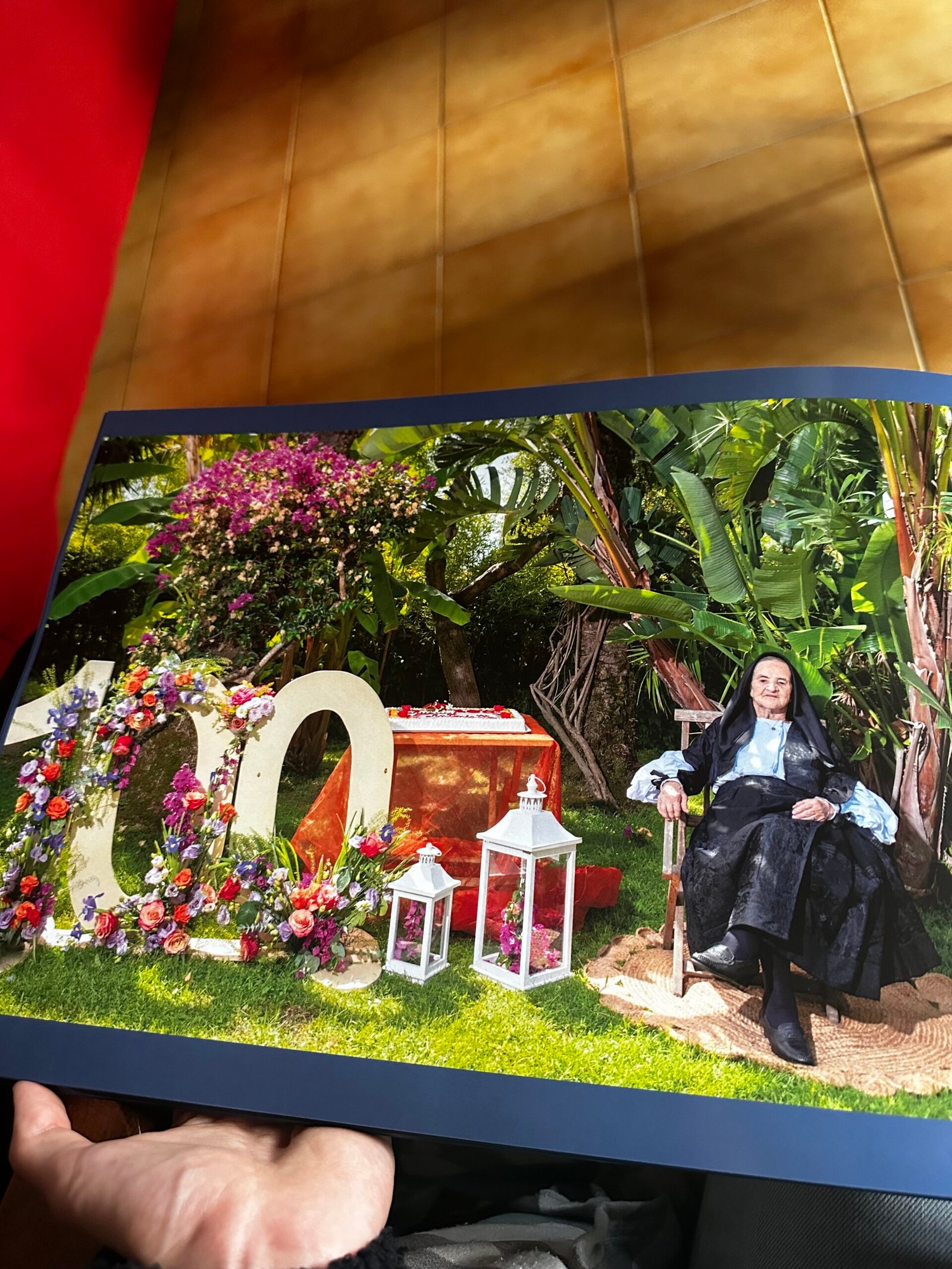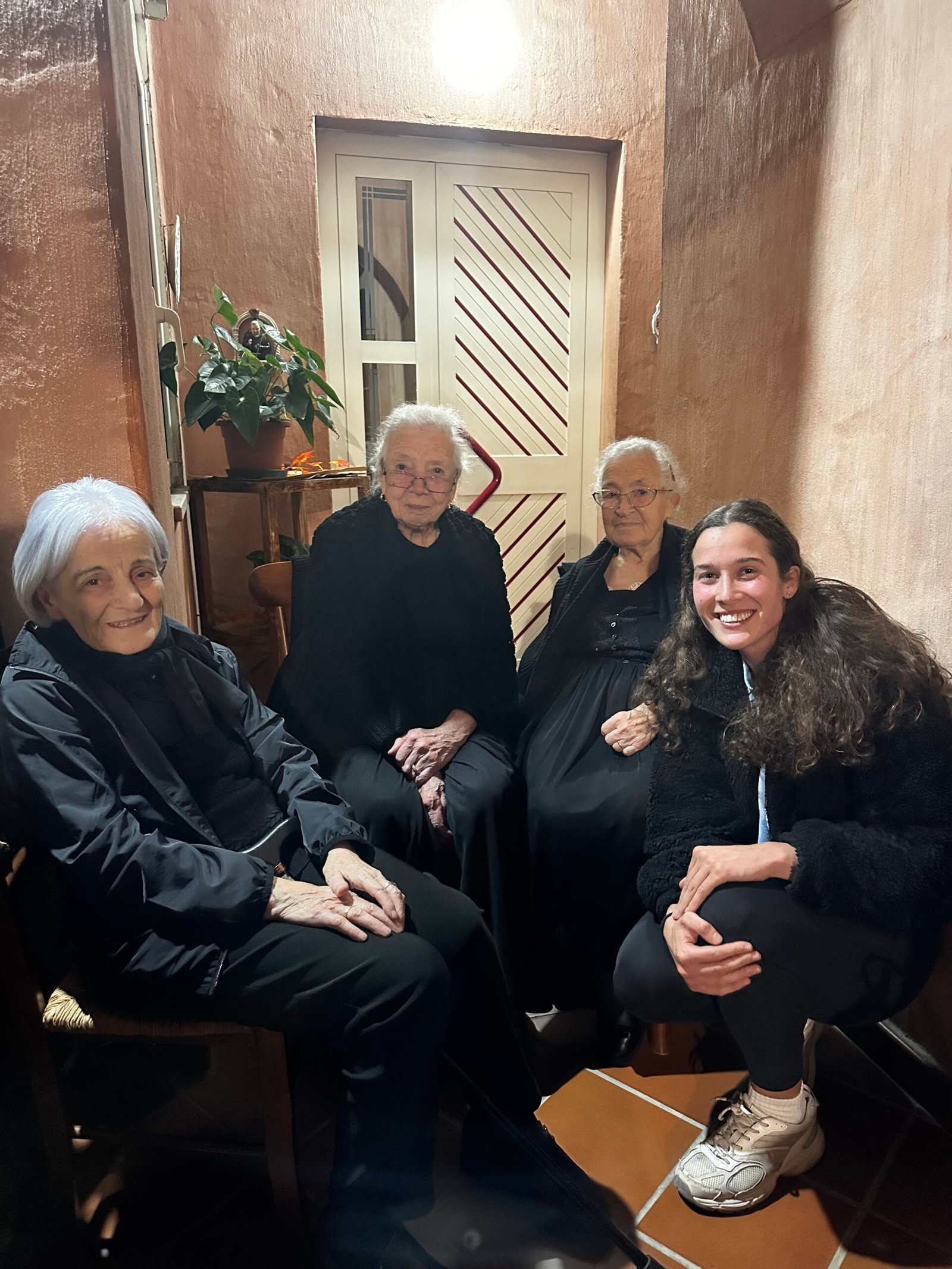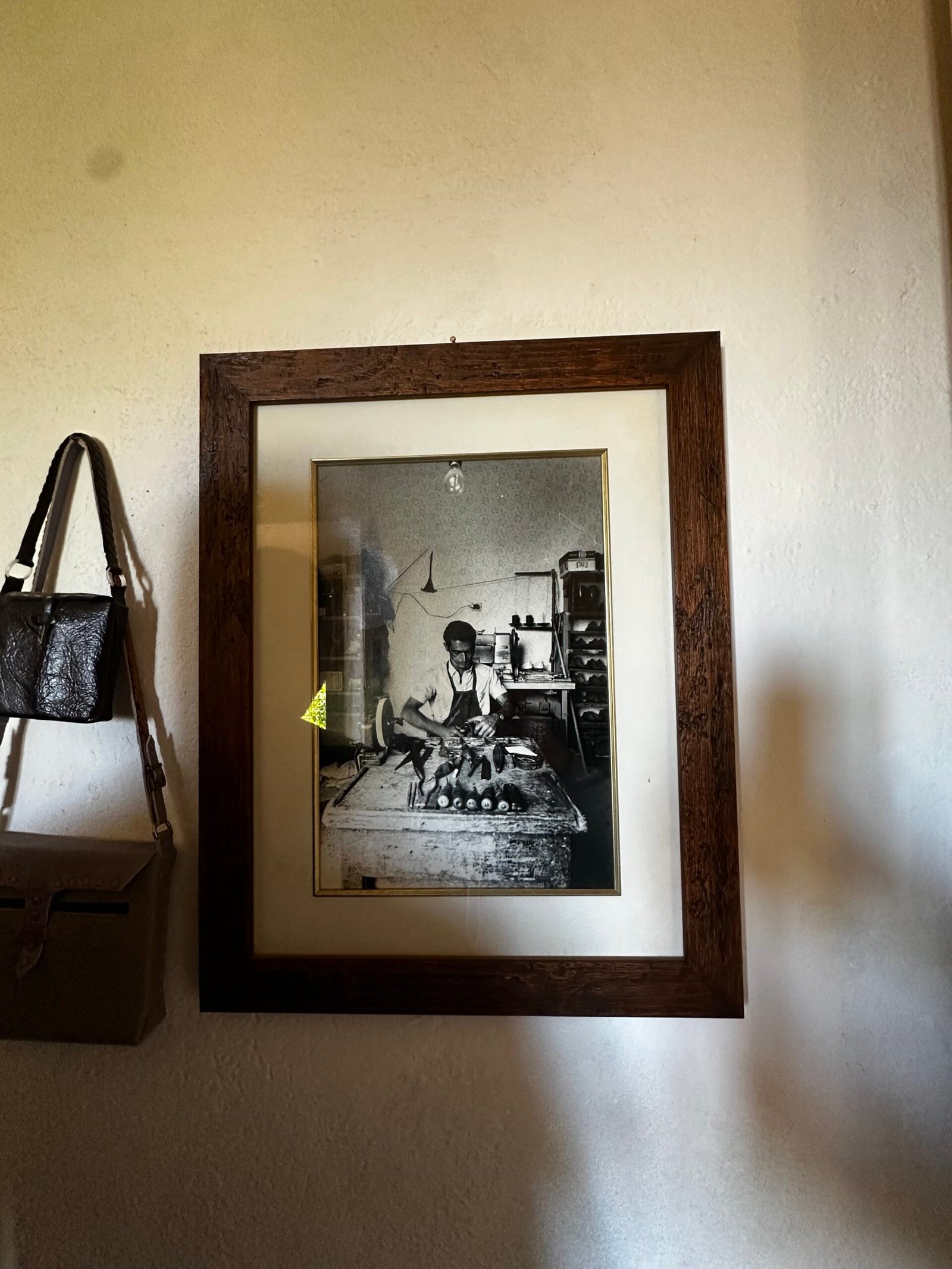Following my interview with Mario, I felt encouraged and motivated to continue gathering insights about how these people that live in the Blue Zones live longer and healthier lives, particularly from older individuals. Fortunately, Hernan, our translator, informed us that he knew an elderly couple residing in Nicoya and offered to facilitate an introduction. Although I was initially uncertain about arriving at someone’s home without prior notice, we trusted his guidance and made our way deeper into Nicoya in his gray Toyota.
The drive through Nicoya felt magical as we traveled beneath the canopy of towering trees. The sun poured over the green hills, beaming through the full, leafy branches. My heart raced with excitement because this adventure was truly coming together. As I looked out the window in awe, I thought of Viktor Frankl’s Man’s Search for Meaning and the moment where prisoners, despite their dire fate, are captivated by the beauty outside the train window. It made me wonder if that connection to nature is part of why people in Nicoya seem so happy and healthy. Surrounded by Costa Rica’s stunning landscape, it felt possible.
As I continued to reflect on my experience so far, I realized something else. The people around us didn’t appear rushed or overwhelmed. They weren’t outwardly joyful or visibly unhappy; rather, they seemed grounded, calm, and quietly content, as if living in a continuous state of bliss. There was no urgency in their movements and no signs of stress or frustration. I didn’t hear any honking horns or experience any impatient glances. There was a sense of peace in the air, the peace left a lasting impression on me.
I brought my attention back to the task at hand. It was hard to believe how everything was falling into place. I opened my brown leather notebook and flipped through the pages to review my questions. This notebook would become a record of every detail I observed and every emotion I experienced in the Blue Zone.
Suddenly, Hernan stopped at the base of a long dirt path that disappeared into the woods. The house was out of sight, which left me feeling a bit uneasy. Hernan went ahead to speak with the family while we waited at the bottom of the hill. A few minutes later, he returned with reassuring news that they were delighted to have us visit and meet them.
I walked up the path and reached a wooden house that looked like it had been standing for a century, and, to my surprise, the house was actually one hundred years old. Colorful clothes swayed on a nearby clothesline, and a brown-and-white cat lounged lazily on a wooden plank attached to the outside of the house. Chickens, dogs, and cats wandered freely around the yard, like Old MacDonald’s farm. Their barks, meows, and clucking filled the air as they chased each other around the house.
As I approached, I saw an elderly woman sitting in the open doorway, but there was no actual door, while a man sat on the wooden plank beside the brown-and-white cat. I introduced myself and learned their names. The woman in the doorway was Juana, and her husband was Benito, both 81 years old. They welcomed me warmly, and I took a seat between them on the plank, where the cat moved as if offering me her spot. Benito wore jeans and a blue-and-white striped Hollister shirt, while Juana wore a white tank top and black Crocs, her hair pulled back with glasses rested atop her head. Hernan sat across from us wearing his gray New York Yankees T-shirt, ready to translate.
Two dogs, named Negro and Poquito, wandered nearby, and a rooster crowed in the background. The setting felt alive. We all shared a laugh when Juana asked where I was from. When I told her New York, she didn’t hesitate to say she would love to visit someday.
Juana, though blind in both eyes, shared her story with ease and grace. She said she wakes up around 4 or 5 a.m., tends to the chickens, showers, and then enjoys coffee and water. Her first meal comes at 11 a.m., usually rice and beans, sometimes with plantains. She eats meat sparingly, maybe once a week, but lit up when she talked about fruit, especially pineapple, her favorite. When I asked what she looks forward to each day, she said “meat” almost instantly, and we all laughed because she was so excited.Their last meal is around 4 or 5 p.m., and they go to sleep by 8 p.m.
She spoke about her first husband, who passed away. They were together for forty years and they had two children together. For the past twenty years, she’s been happily married to her second husband, who she lovingly referred to as her companion. When I asked about her favorite part of the day, she said she likes to sit in the shade under a tree near the house because it’s cool and peaceful there. She looks forward to sitting there every single day.
The most touching moment came when I asked Juana about her purpose. Without hesitation, she glanced inside the house and said, “mi hijo.” Her son is disabled and cannot walk, and she cares for him every day. He had been sitting quietly in the back during our visit, and I hadn’t noticed him at first because the interior was dark. He sat in the shadows with a walker beside him, but he was listening intently. Her quiet strength and devotion spoke volumes about love, family, and responsibility.
Her husband Benito, despite his age, still works in farming and construction every day. He was recently diagnosed with anemia, which has impacted his appetite, but he still looks forward to working. He shared with us that the first time he ever saw a doctor in his entire life was when he was 60 years old. Now, since he was recently diagnosed with anemia, he takes the bus to his doctor appointments and said the medicine that he has been prescribed helped him. He even enjoys visiting the doctor, which surprised Hernan, who believes the healthcare system in Costa Rica isn’t very good.
When I asked Juana if she would ever leave Nicoya, her answer was firm. She said she has always lived there and has no desire to leave. She believes the world beyond Nicoya is full of bad people, while her home among the trees offers safety, cool shade, and serenity. What struck me most during our conversation was how open and welcoming their home felt. People came and went freely throughout the interview, and no one seemed to mind. Neighbors walked up and down the hill and nobody was a threat. Everyone that came seemed so friendly like they had their own little community.
I asked if they attended church, and Juana said she doesn’t go anymore because she sometimes gets dizzy, but Benito goes to the Catholic church once a month. We had a meaningful conversation and shared stories, laughter, and warmth. I learned about their daily routines, eating habits, and what they look forward to each day, and the moments that give their lives purpose. I could sense that they have a deep appreciation for the simple joys in life, and that their bond, faith, and daily rhythms provide them with a strong sense of purpose and contentment. This is what the Blue Zones are all about, a life centered on purpose, community, family, healthy eating and movement, and a connection to faith.
Toward the end, I noticed a yellow and black butterfly resting on a nearby rock. I’ve always found comfort in butterflies, they symbolize transformation and have often felt like quiet guides in my life. In the book The Alchemist by Paulo Coelho about a boy’s path to understand his Personal Legend or purpose in life he says,
“He walked slowly through the market. The merchants were assembling their stalls, and the boy helped a candy seller to do his. The candy seller had a smile on his face: he was happy, aware of what life was about, and ready to begin a day’s work. It gave the boy a feeling of great joy: he realized that he could always be happy if he focused on the present moment. Suddenly, he saw a butterfly flutter by. He remembered his grandfather telling him that butterflies were good omens.”
As I stood to leave and walked back down the dirt path toward the car, that same butterfly danced around me. I smiled. It felt like a sign and I knew I was exactly where I needed to be.



